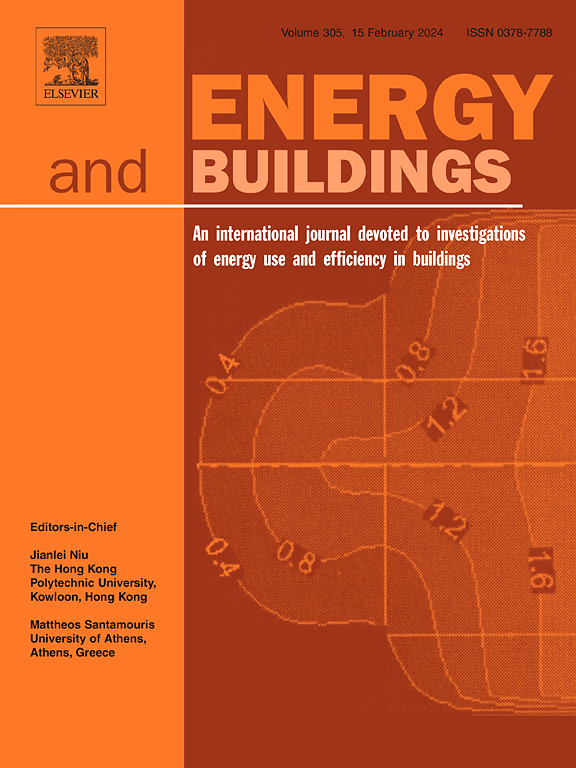Multi objectives reinforcement learning for smart buildings: A systematic review of algorithms, applications and future perspectives
IF 7.1
2区 工程技术
Q1 CONSTRUCTION & BUILDING TECHNOLOGY
引用次数: 0
Abstract
With the rapid advancements in digital technologies, changes in regulatory and societal expectations, and increased environmental awareness and concerns among building owners and occupants, the design and effectiveness of building control systems and their energy usage are under constant scrutiny as never before. The reshaping and integration of building controls with Internet of Things (IoT) devices have led to the growing popularity of Reinforcement Learning (RL) in the built environment. Multi-objective reinforcement learning (MORL) is touted to be more effective than traditional RL in optimizing smart building operations by resolving multifaceted goals, improving policy adaptability and decision-making processes involving multiple stakeholders and criteria. Hitherto, little is known of the full potential of MORL and its application trends. In addressing this, this research aims to build a knowledge base around the application trends of MORL framework and its benefits for smart building energy design and control systems through a systematic and critical review using the Preferred Reporting Items for Systematic Reviews and Meta-Analyses (PRISMA) guidelines. A total of 1071 studies were retrieved, of which 74 studies were included in the final assessment to present and discuss: (i) objectives RL typically in smart building context; (ii) overview of the design and control strategies of MORL in smart buildings; (iii) MORL applications and performance evaluation in smart building; and (iv) challenges and future research directions and opportunities. Overall, our findings reveal potential work done to explore the use of MORL towards controlling multiple policies and complex dynamic building environments, and that current studies tend to focus on incorporating occupancy patterns and/or occupant feedback into the MORL control loop.
智能建筑的多目标强化学习:对算法、应用和未来前景的系统回顾
随着数码科技的飞速发展、规管和社会期望的改变,以及楼宇业主和住户的环保意识和关注程度的提高,楼宇控制系统的设计和有效性及其能源使用受到前所未有的密切关注。建筑控制与物联网(IoT)设备的重塑和集成导致了强化学习(RL)在建筑环境中的日益普及。多目标强化学习(MORL)被认为在优化智能建筑运营方面比传统的强化学习更有效,它解决了多方面的目标,提高了政策适应性和涉及多个利益相关者和标准的决策过程。迄今为止,对MORL的全部潜力及其应用趋势所知甚少。为了解决这个问题,本研究旨在通过使用系统审查和荟萃分析(PRISMA)指南的首选报告项目进行系统和批判性审查,围绕MORL框架的应用趋势及其对智能建筑能源设计和控制系统的好处建立一个知识库。共检索了1071项研究,其中74项研究被纳入最终评估,以介绍和讨论:(i)智能建筑背景下典型的RL目标;(ii)智能建筑中MORL的设计和控制策略概述;(三)MORL在智能建筑中的应用及性能评价;(四)面临的挑战和未来的研究方向与机遇。总的来说,我们的研究结果揭示了MORL在控制多种政策和复杂动态建筑环境方面的潜在应用,目前的研究倾向于将占用模式和/或占用者反馈纳入MORL控制回路。
本文章由计算机程序翻译,如有差异,请以英文原文为准。
求助全文
约1分钟内获得全文
求助全文
来源期刊

Energy and Buildings
工程技术-工程:土木
CiteScore
12.70
自引率
11.90%
发文量
863
审稿时长
38 days
期刊介绍:
An international journal devoted to investigations of energy use and efficiency in buildings
Energy and Buildings is an international journal publishing articles with explicit links to energy use in buildings. The aim is to present new research results, and new proven practice aimed at reducing the energy needs of a building and improving indoor environment quality.
 求助内容:
求助内容: 应助结果提醒方式:
应助结果提醒方式:


